They’re building community outside traditional school. Could Delaware see homeschool wave?
They were cradled in a pocket of green, secluded from nearby Georgetown neighbors.
A few children hung from the playground equipment on a spring afternoon, while chickens and sheep wandered in their pens. It was an unofficial visit to the Holleman’s homestead, just over 5 miles from town, 16 miles from the beach and zero miles from school.
Talon and Travis Holleman started home-schooling their daughter and son in 2017. Today, a youth development program hosts afterschool workshops, offers home-schooling classes and prepares for its largest summer camps, serving hundreds of children from their 3-acre homestead.
“It just got out into the home-school community, and they wanted more of this,” Talon said, having moved her family from the Baltimore area. “They're like, ‘You guys should open this up to more people and start inviting people onto your property.’ That's how R.O.O.T.S. blossomed.”
The Sussex County outfit mirrors an uptick in Delaware home-schooling overall, having launched in 2021. And, as more families and home schools of different shapes and sizes join the fold statewide this year, the trend could be out-living the pandemic shutdown. The impact on families is clear, though the impact on studies would be hard to measure overall.
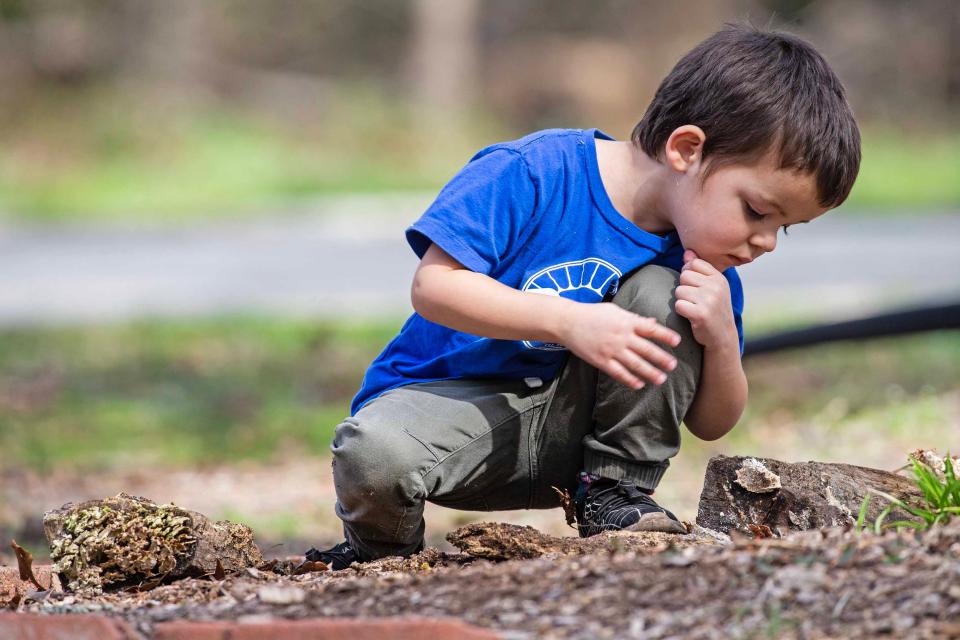
R.O.O.T.S., or Reaching Outside of Traditional Schooling, Youth+ Development Program launched within the same year Delaware saw a 66% increase in home schools, according to state data for ‘20-2021. That figure, for single family and multifamily home schools, understandably dwindled moving away from peak shutdown. By ‘22-2023, it had dropped nearly a third from the year before.
But, as this school year started, Delaware saw a 32% increase. That’s over 52% more home schools than before the pandemic, carrying more than 4,400 students.
Amy Albanese is new among these figures, but the Milton mom hopes her children can be more than numbers.
The home-schooling parent of five and her team are now launching a home-school co-op, seeing interest swell in their corner of Sussex County. The co-op she cofounded, “Wild Wonderment,” combines similar interests in fusing nature with curricula, while keeping students free of the traditional classroom.
“I was searching all over for what I was looking for, which was a Christian, nature-based co-op. And there's a lot of co-ops around, but none of them were those two things,” she said. “So I was like, ‘I think I’m going to create one.’”
And she may find plenty of company.
Another angle: Black families are finding empowerment in home-schooling. And it's not just amid COVID-19
Forging new ground
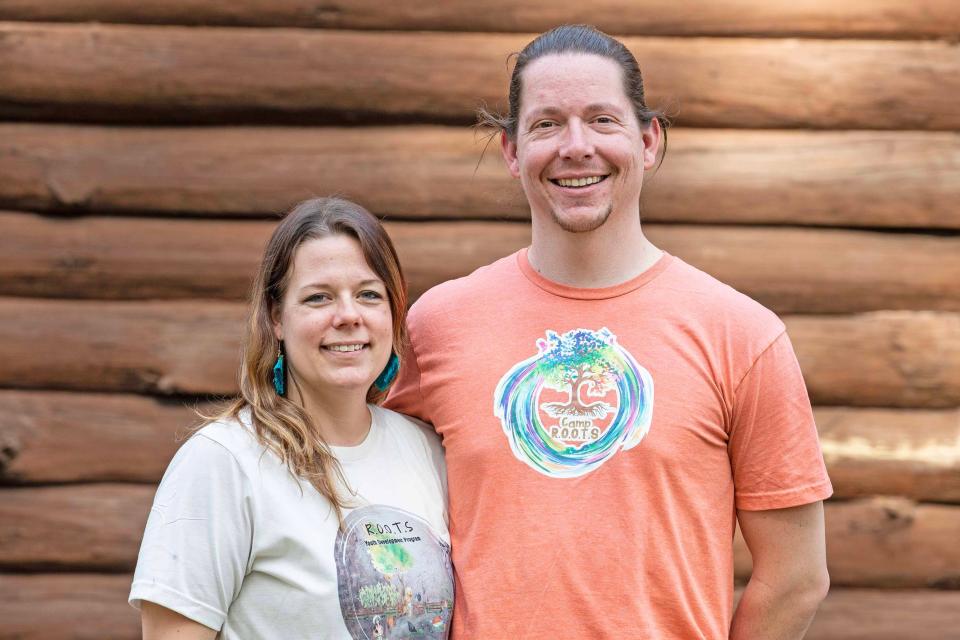
She didn’t know what she was doing at first.
Talon and Travis Holleman, sweethearts since they were 14 years old, left Baltimore for Southern Delaware in 2017. The pair stepped away from jobs working some 50 hours a week, hoping to spend more time raising their kids.
“I think that really spoke to her, like: ‘Hey, we're working all the time to raise kids, but we're paying other people to raise the kids,’” Travis said, now running his own business and a homestead. “How do we do what we want to do and impart the things we care about onto our children?”
They brainstormed, but every list came back with “community, teaching and being outdoors as much as possible.”
After beginning to home-school Bella and Emmett, the vision kept growing. During pandemic shutdown, the family moved to their current homestead, with thoughts about how to keep home-schooling in core areas, while offering community education programming.
By November 2021, they started offering an after-school workshop. They hoped for maybe 10 children, but slots sold out in about an hour. The pilot round of sessions capped at 32 students, with a waitlist.
Now serving some 500 children ages 18 months to 12 years, the program offers workshops based on self-sufficiency, homesteading, animal husbandry, bushcraft, nature studies and more. These come beside summer camps, field trips and social-emotional learning courses.
“We're trying to bridge that gap in the traditional school system, versus what's not being taught anymore,” Talon said. “Those home-ec skills, community building essentially and learning how to be an all-around wholesome human being.”
It all started with her interest in home-schooling. And she’s not alone.
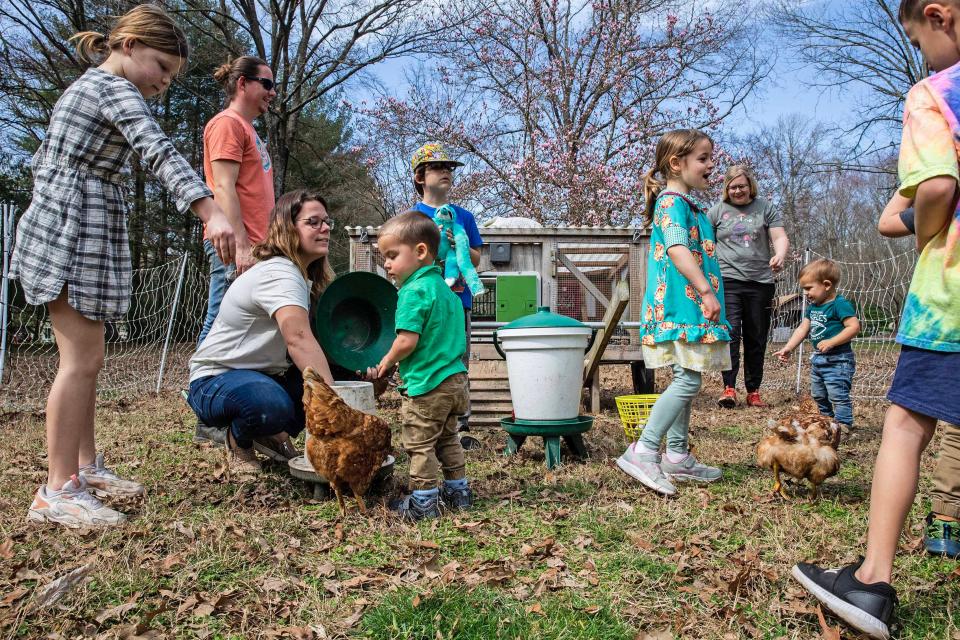
Delaware student behavior: Teachers are battling poor student behavior post-COVID. Delaware lawmakers strain for answers
Nationally, home-schooling has become — by a considerable margin — the country’s fastest-growing form of education, according to a Washington Post analysis in 2023. In that analysis, the average for school districts across Sussex and Kent Counties was about about 30% growth in home-schooling students from 2018 to 2021, while New Castle's saw 9%. Overall, the largely unregulated education style is being embraced by more families across the U.S. than ever before.
“I don’t think we will ever know the impact,” said Jim Dwyer, a professor at William & Mary Law School who wrote a book about home-schooling. “There is no oversight of home-schooling, no real assessment requirements, with a very limited exception in New York State.”
The professor cited estimates that roughly half of those who start home-schooling don't stick with it after a year or so, while many stop after elementary.
Across race, white families have historically home-schooled at a much higher rate — nearly double that of Black families in 2019, according to the National Center for Education Statistics. Delaware data did not distinguish between race. But Census data coming out of the pandemic began showing a rise among Black families, for more reasons than COVID-19 side-effect.
Research shows mixed outcomes, with some studies sharing academic benefits, others documenting shortcomings. Even home-schoolers themselves are often divided about what works best, Dwyer noted. Some camps push rigid schedules and religious textbooks, others “unschooling” with beliefs in more free-range learning, with many in between.
Talon has heard it all before. She saw some of the same things getting into home-schooling, with countless curricula for home-based learning at her fingertips. For her, some six years in, it's been all about tailoring class to her children’s personal learning styles.
The mother of two doesn’t know what the future holds, but she hopes to keep encouraging interested families in Delaware.
Delaware child care: Struggle for affordable options persists in Delaware. That's for parents and providers
Following the trail
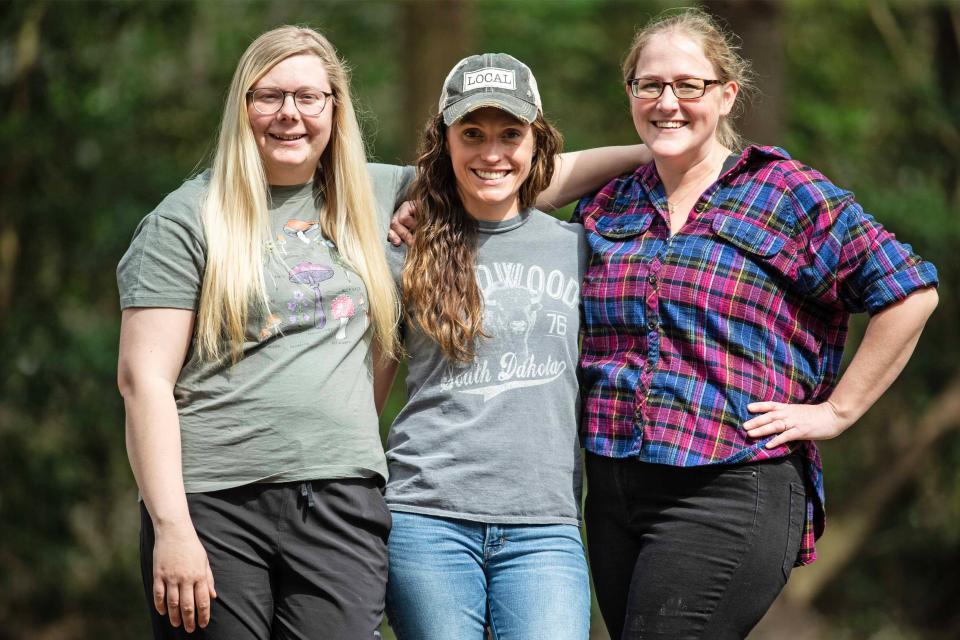
She was tired of bullies.
"I just remember feeling really helpless,” Amy Albanese said, her oldest stepdaughter needing to call the police due to unrelenting bullying in her school. “That was a big driving force to see what my eldest went through. And then, COVID happened.”
She started to see her children do well at home. Her eldest was safe. The younger twins and their severe allergies were under her watch, other kids home, the family unit kept tight.
“I felt like, OK, this is doable.”
Soon, she realized she could do even more.
Joining fellow interested moms in the area, Albanese co-founded Wild Wonderment alongside Blaire Hartstein and Curriculum Developer/Lead Teacher Heather Robinson. The budding home-schooling co-op looks to offer five-week sessions at Trap Pond State Park “designed to spark curiosity, engage creativity and develop life-skills,” while adding community to any family’s home-schooling experience.
The team hopes to fold practical knowledge about nature into Christian principles, while touching on typical core subjects. That also includes various side activities and field trips.
“We're trying to raise kids who just love to learn, who learn for the sake of learning,” Albanese said. “It's not to pass a test. It's not to get a grade. And I think if you cultivate that when they're young, it goes into adulthood, and then there's no stopping them.”
It started as Friday meet-ups between friends. After making a public page, Albanese said the team gained some 300 followers in a few days. Then, the co-op looked forward to opening registration on April 8.
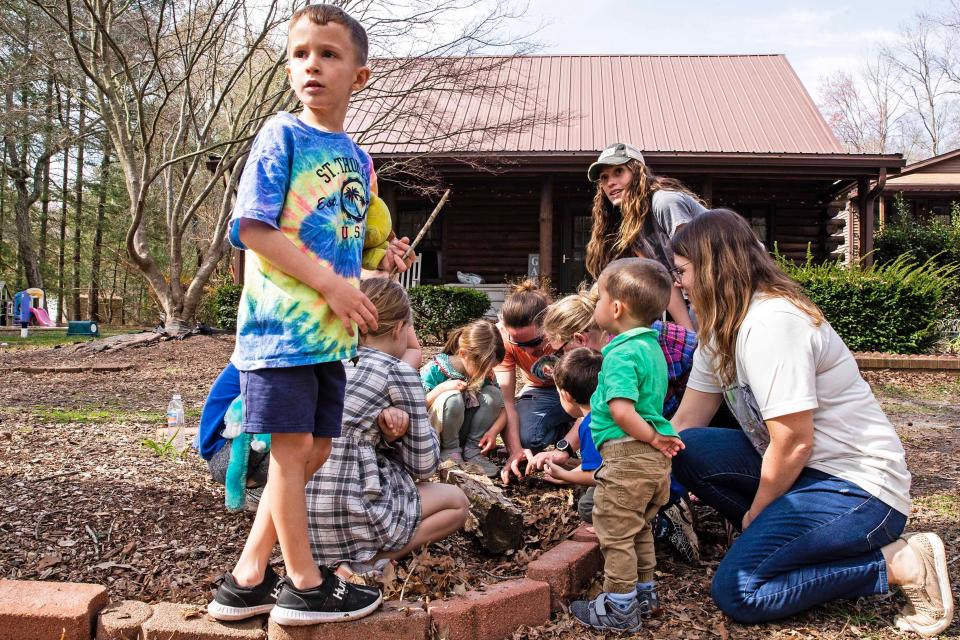
Back on her Georgetown homestead, Talon remembers giving Albanese some early pointers over lunch. But looking ahead, she aims to formalize that mentorship for fellow home-schoolers.
"We're starting up the nonprofit side, and we're hoping one of the initiatives is going to be supporting home-schoolers even more," she said, Travis nodding beside her. "We want to get some grant funding, and really open up our home-school community a little bit more, and provide them with more support."
Thinking of their programs, of multifamily home-schooling, the pair doesn't think the interest is going anywhere.
"People want to rebuild that community that they had pre-COVID," Travis said. "And so, they get their kids out. They get to spend time with their children. They get to learn. They also get to make friends."
Solar eclipse Delaware: Coming solar eclipse will bring teachers a science lesson in the sky
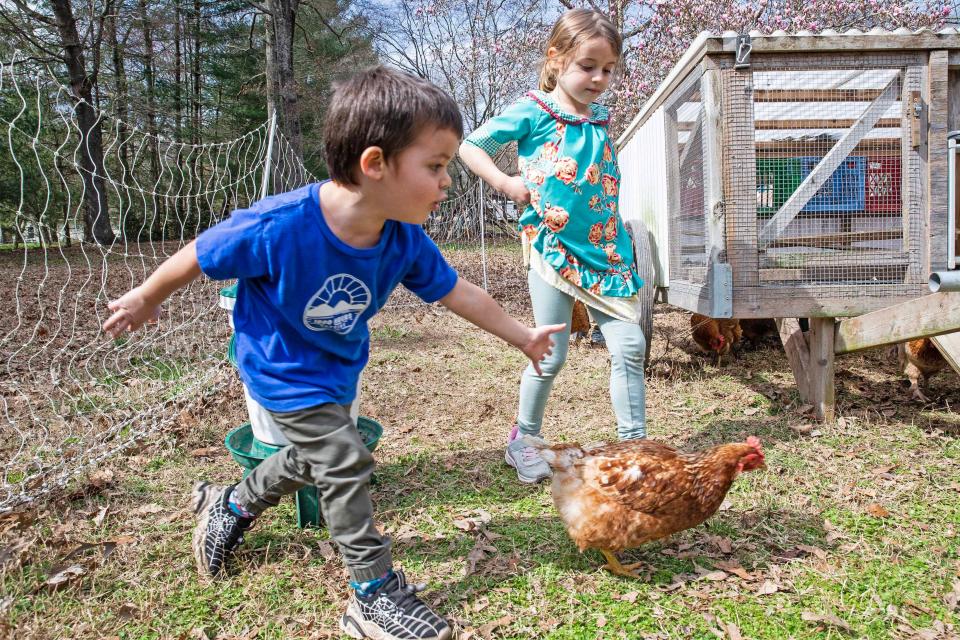
Got a story? Contact Kelly Powers at kepowers@gannett.com or (231) 622-2191, and follow her on X @kpowers01.
This article originally appeared on Delaware News Journal: Delaware homeschooling families look to build community outside class

